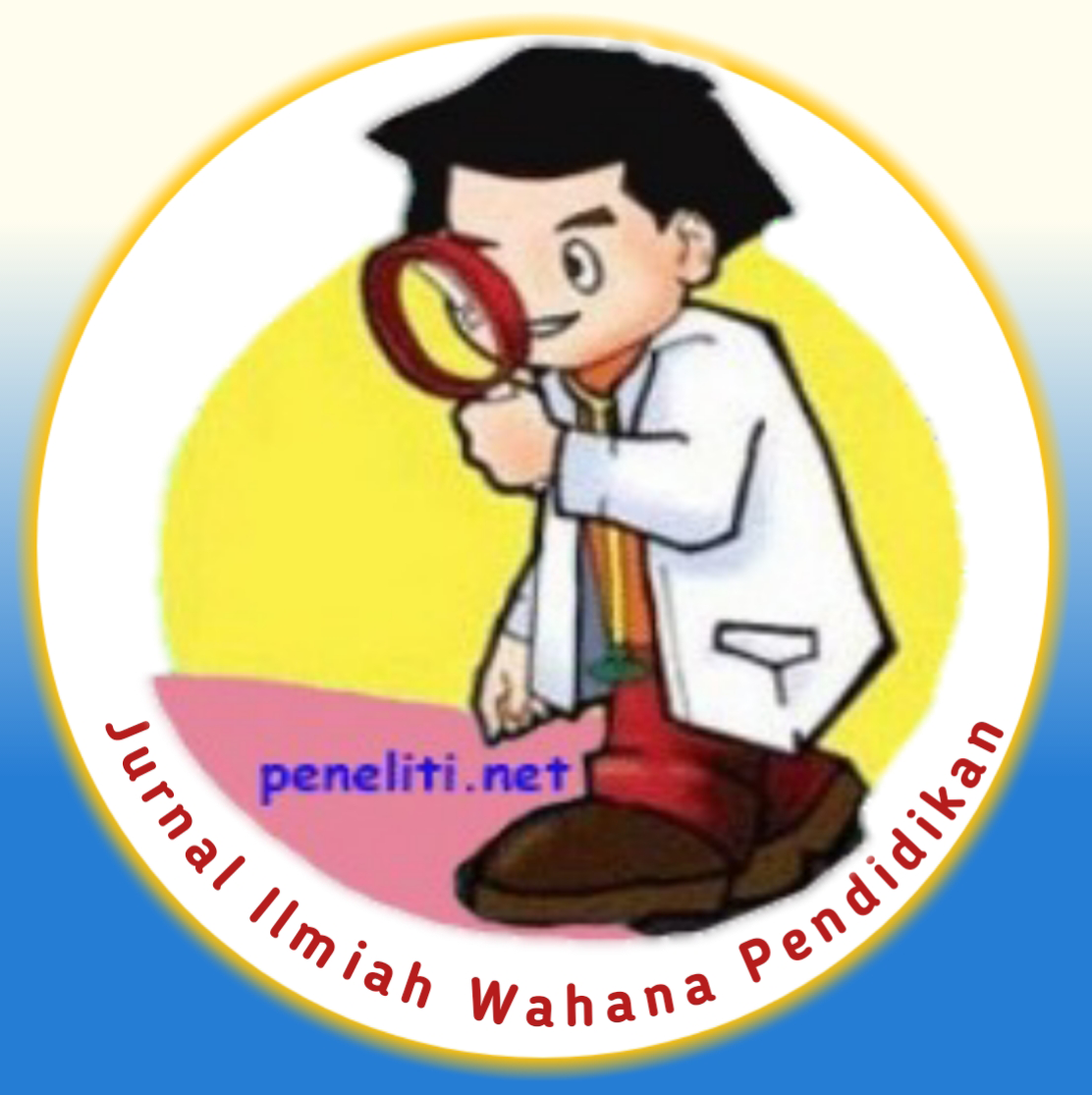Investigating Efl Students’ Engagement And Responses In Learning English Vocabulary Through Mind-Mapping Strategy
Abstract
Mind mapping is a promising strategy designed in connecting vocabulary with learning that can improve student behavior, cognition, and emotions so that mind-mapping learning can run in accordance with the working system of the human brain. Vocabulary is a core component of listening, speaking, reading, and writing. Vocabulary is very important to learn for students who want to master a language. Student engagement is the level of student involvement in academic activities such as attending class, working on assignments, taking part in discussions, and asking questions in class. This study aims to involve students in learning English Vocabulary through mind mapping strategies and obtain student responses to the use of mind mapping strategies in learning English vocabulary. The current research uses qualitative research with Classroom Action Research (CAR) with data collection through interviews, observation, and documentation. The data is analyzed by thematic analysis. This study was conducted in a junior high school in Bekasi in grade 8 and involved five students in collecting interview data. It can be found that there are 2 cycles to be carried out in the study consisting of Cycle 1 (First and second meeting) and Cycle 2 (first and second meeting). Cycle 1 of the first and second meetings showed that students were very enthusiastic and less enthusiastic in learning mind-mapping with English vocabulary. In cycle 2, the first and second meetings showed that students remained enthusiastic about the material presented and considered the mind-mapping material easy to master.
References
Almirawati, I. E., & Chakim, N. (2018). The Implementation of Mind Mapping Technique to Teach Descriptive Text Writing at SMAN Surabaya. Retain, Vol. 6 (1), pp. 17-24.
Al Kamli, H. M. (2019). The Effect of Using Mind Maps to Enhance EFL Learners' Writing Achievement and Students' Attitudes Towards Writing at Taif University. Arab World English Journal, 1-92.
Al Shdaifat, S., Al-Haq, F. A.-A., & Al-Jamal, D. (2019). The Impact of an E-mind Mapping Strategy on Improving Basic Stage Students’ English Vocabulary. Jordan Journal of Modern Languages and Literature, 385-402.
Alqasham, F. H., & Hassan Al-Ahdal, A. M. (2021). Effectiveness of mind-mapping as a digital brainstorming technique in enhancing attitudes of Saudi EFL learners to writing skills. JOURNAL OF LANGUAGE AND LINGUISTIC STUDIES, 1141-1156.
AlSaleem, B. I. (2019). Mind Maps Aid EFL Students’ Vocabulary Building. Asian Social Science.
Astriani, D., Susilo, H., Suwono, H., Lukiati, B., & Purnomo, A. R. (2020). Mind Mapping in Learning Models: A Tool to Improve Student Metacognitive Skills. Malang: www.i-jet.org.
Boyatzis, R.E. (1998). Transforming qualitative information: thematic analysis and code development. Sage.
Buzan, T. (2004). Mind Map to Increase Creativity, Jakarta: Gramedia Pustaka Utama.
Buzan, T. (2009). Smart Book of Mind Mapping, Jakarta: Gramedia Pustaka Utama.
Buzan, T (2006). The Mind Map Book. London: BBC Books
Buzan, T. (1993). The Power of Mind-Mapping: “How to Use Mind Maps to Boost Your Creativity, Achieve Faster Success, Greater Results, and Develop Winning Ideas at the Speed of Thought”. English: Thorson
Dewi, R. (2017). THE INFLUENCE OF MIND-MAPPING STRATEGY ON STUDENTS‘ VOCABULARY MASTERY. Surabaya: The 6th ELTLT CONFERENCE PROCEEDINGS.
Fredericks, J.A., Blumenfeld, P.C., & Paris, A.H. (2004). School engagement: Potential of the concept, state of the evidence. Review of Educational Research, 74(1), 59-109.
Harmer, J. (2002). How to Teach English. New York: Edinburg Gate.
Harmer, J. (2007). The Practice English Language Teaching. New York: Edinburg Gate.
Jiang, Y. (2020). Application of the Mind Map in Learning English Vocabulary. Open Access Library Journal.
Khatimah, K. & Rachman, D. (2018). Mind mapping vs semantic mapping: Which technique gives EFL learners more benefits in reading comprehension? JEES (Journal of English Educators Society), 3 (2), 165-176.
Kurniawan, A. P., Rahmawati, A., Faihatunnisa, E. I., & A.P., T. P. (2019). The Effectiveness of Collaborative Mind Mapping to Develop Writing Skills at MTsN 4 Mojokerto. Advances in Social Science, Education, and Humanities Research.
Liang, Y. (2022). The Application of Mind Mapping in English Foreign Language Teaching: A Case Study of Unit 1 Great Cities in Asia of the English Textbook for Grade Six (Oxford Shanghai Edition). Open Access Library Journal.
Mamura, P. Z. (2011). THE USE OF MIND MAPPING TO IMPROVE VOCABULARY MASTERY OF THE FOURTH-GRADE STUDENTS OF SD MUHAMMADIYAH NGIJON 1 IN THE ACADEMIC YEAR OF 2009/2010. Yogyakarta: STATE UNIVERSITY OF YOGYAKARTA.
Mirza, A. (2016). THE USE OF MIND MAPPING STRATEGY TO IMPROVE STUDENTS’ SPEAKING ABILITY. Banda Aceh: ISLAMIC STATE UNIVERSITY OF AR-RANIRY.
Moesarofah. (2018). STUDENT ENGAGEMENT: MENGAPA PENTING BAGI MAHASISWA DI PERGURUAN TINGGI? Seminar Hasil Riset dan Pengabdian, 414-418.
Nidayanti, N., Kasim, U., & Heriansyah, H. (2022). An Analysis of Using Mind Mapping Technique to Improve EFL Students’ Writing Ability. Research in English and Education (READ), 43-52.
Pribadi, B. A., & Susilana, R. (2020). The Use of Mind Mapping Approach to Facilitate Students’ Distance Learning in Writing Modular Based on Printed Learning Materials. European Journal of Educational Research, 907 - 917.
Sahrawi. (2013). THE EFFECTIVENESS OF MIND MAPPING FOR TEACHING VOCABULARY TO THE EIGHTH GRADE STUDENTS OF SMP NEGERI 3 SUNGAI KAKAP IN ACADEMIC YEAR 2012/2013. Jurnal Pendidikan Bahasa, 2.
Setianingsih, T., Rosihan, M., & Pardani, S. (2018). The use of mind mapping to improve motivation in learning the vocabulary of second-grade students at MTs NW Mispalah Praya. JOLLT Journal of Languages and Language Teaching, 6(2), 125-133
Stokhof, H., de Vries, B., Bastiaens, T., & Martens, R. (2020). Using Mind Maps to Make Student Questioning Effective: Learning Outcomes of a Principle-Based Scenario for Teacher Guidance. Res Sci Educ, 203–225.
Susanto, A. (2017). THE TEACHING OF VOCABULARY: A PERSPECTIVE. Jurnal KATA, Vol 1 No. 2.
Wallace, M. J. (1998). Action Research for Language Teachers. United Kingdom: Cambridge University Press.
Warneri. (2023). UTILIZATION OF MIND MAPPING MEDIA TO IMPROVE STUDENTS' SOCIAL INTELLIGENCE IN INTEGRATED SOCIAL STUDIES LEARNING AT JUNIOR HIGH SCHOOL 1 LUMAR BENGKAYAANG REGENCY. Journal of Education, Teaching, and Learning, 23-29.




